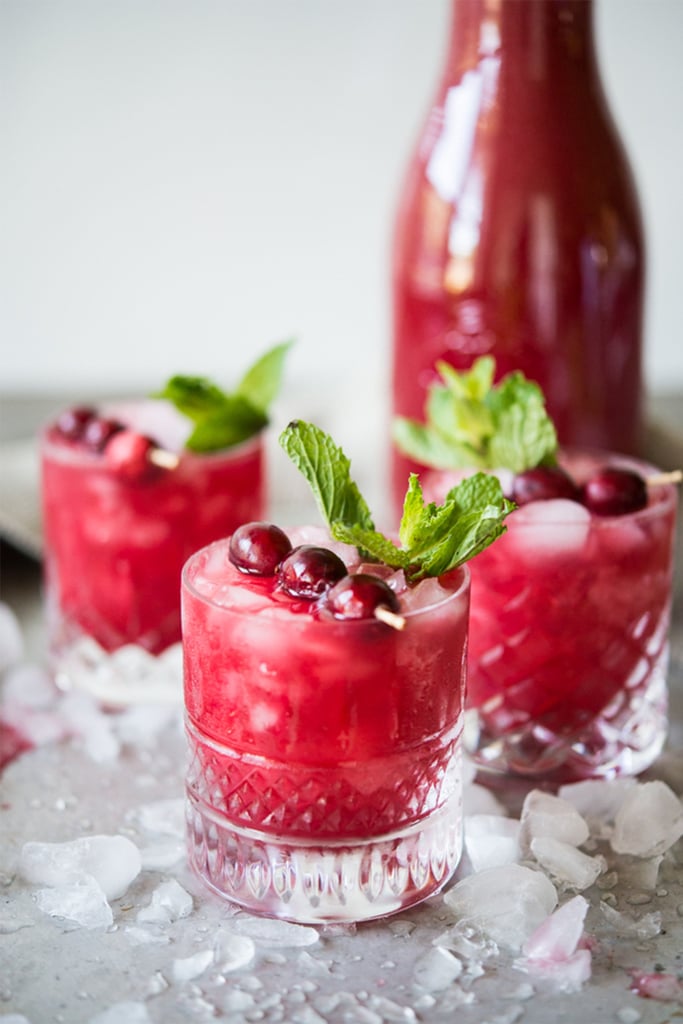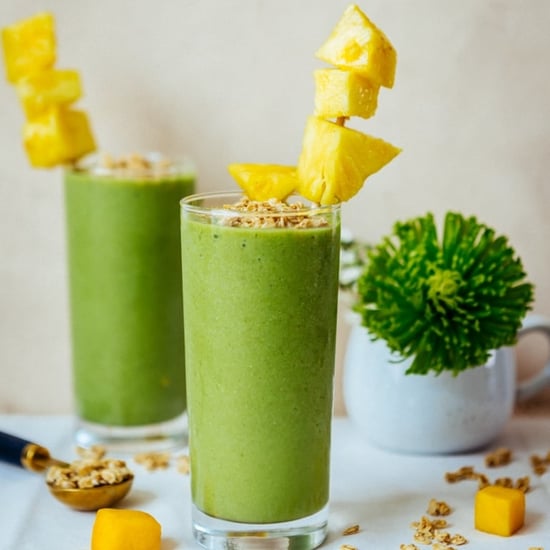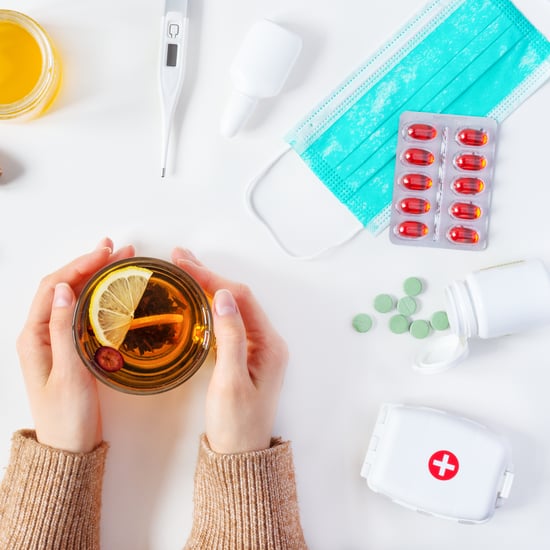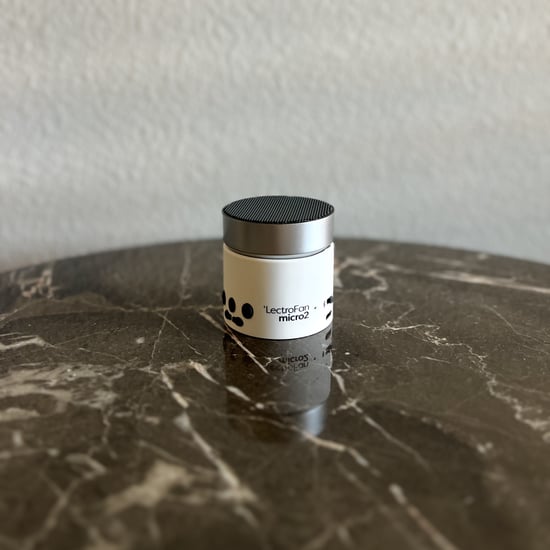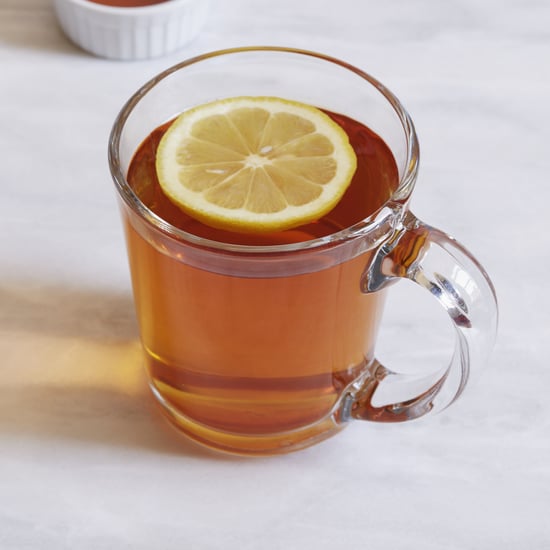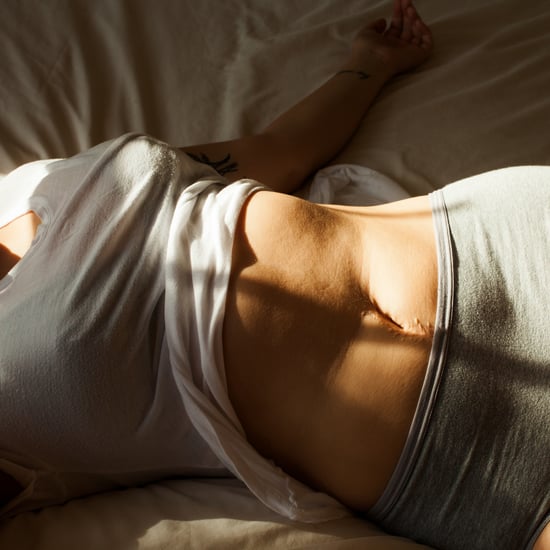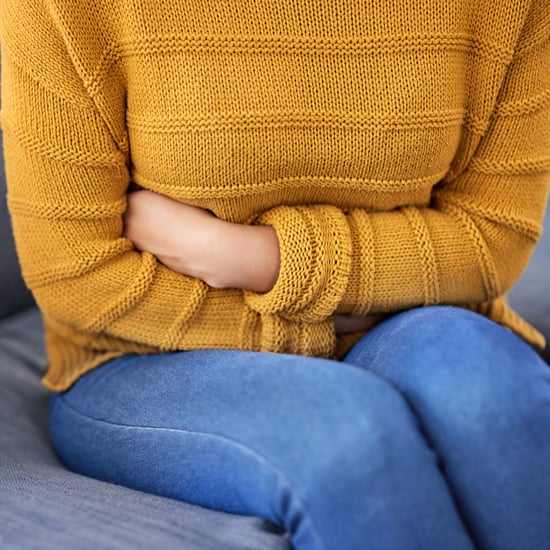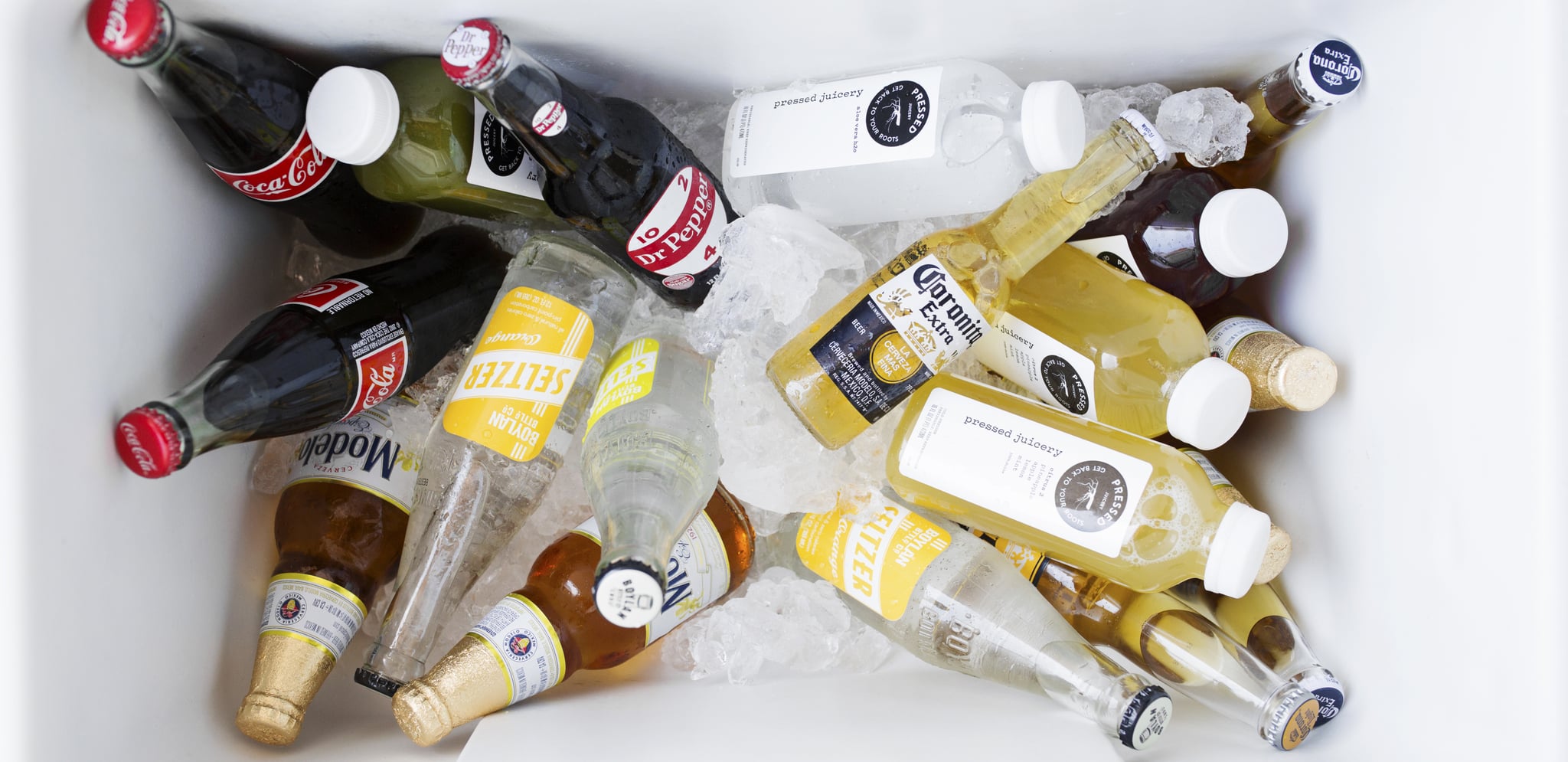
The Rise of Sober Social Events
How Not Drinking Became the New Happy Hour
Being social shouldn't make you feel like crap the next day. Yet even as adults, many of us feel peer pressure to drink. Anyone who's uttered the words "I'm not drinking tonight" knows how awkward it can feel. Suddenly, you're a huge downer. Some friends seem to wonder if you're really invested in the evening — aren't they worth the headache tomorrow?
Each year, Dry January provides an easy excuse for people who want a break from booze. But what if it could last all year? Many want to create a lifestyle that is holistically healthy — and regular drinking can get in the way of this. Today there are more options for those who don't want to make a tradeoff between seeing friends and feeling good. Daybreaker, an early morning dance party, will inspire you do the seemingly impossible task of dancing while sober. Conscious Family Dinner parties are creating a place to meet strangers without relying on drinking. And many bars and restaurants are taking the mocktail more seriously, giving "sober curious" people legit options when meeting friends for drinks.
After trying a Dry January myself, I found it made me more open to seeing friends. If I don't have to worry about a hangover the next day (which I sadly get after even one glass of wine), I'm more likely to say yes to catching up with friends. And the more you order mocktails or sparkling water, the less friends seem to care. This dry social scene is making temperance cool, or at least fun, while also making the world a more friendly place for pregnant women and those dealing with addiction.
Sober Events Are Blending Wellness and Fun
Ben Rolnik started the Conscious Family Dinner as a way to help people connect more intimately. A dinner party that has much more than food, the most recent event offered laughter meditation, collective breathwork, self pep talks, and a song circle. "The Conscious Family Dinner is like a mini festival," Rolnik explains. "We live in a time when people are more connected than ever, with Facebook, texting, Snapchat, and Instagram. Yet so many feel starved for true intimacy, depth, and belonging." He wants to change that for the mostly 20- and 30-somethings who attend his events.
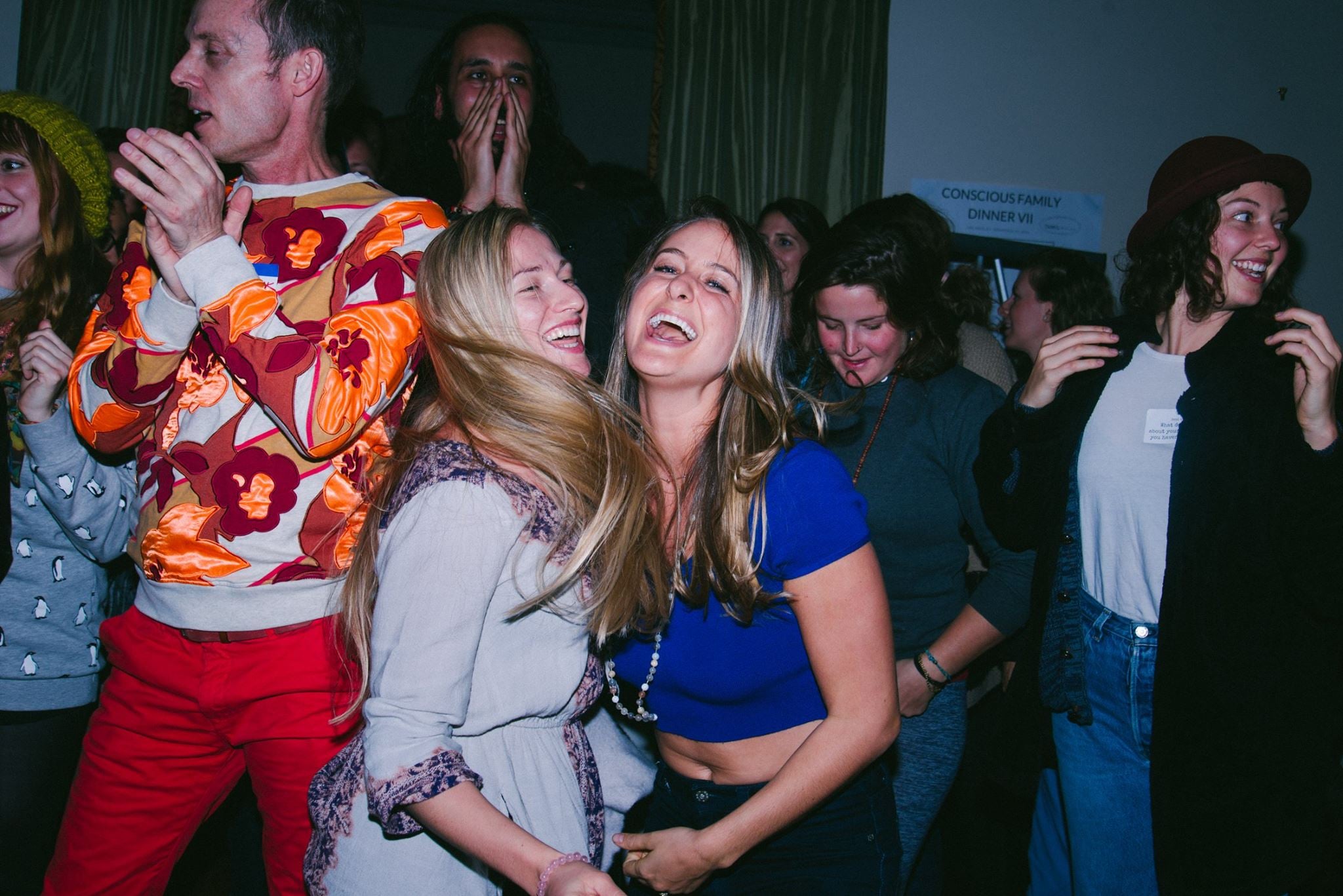
Rolnik believes the Conscious Family Dinners have grown because they're not a party, but rather "a homecoming of beautiful souls and consciousness leaders." Alcohol is decidedly not a part of the Conscious Family Dinner, which leaves some shocked by how much fun they can have without alcohol. "The guests who are surprised have usually never entered into an environment where people engage openly, honestly, and vulnerably with each other." Rolnik thinks that most people are interested in healthy social events, but "they just don't know how, or don't have a space to practice."
Attending Conscious Family Dinners helped Tanya Khani, 27, see the value of alcohol-free social events. "It's amazing what becomes of sober conversations," she says, finding they lead to more intimate connections. "I love that everyone's intoxicated mask is removed." Khani has seen a shift in her social scene calendar since she started going. "I'm happy to say that most of my events are dry, alcohol-free," she notes. "When you're committed to being fully present and alive, alcohol doesn't quite fit that theme anymore."
Radha Agrawal is the cofounder of Daybreaker, a similar booze-free event with a greater focus on fitness. Daybreaker is a morning dance party held monthly. It started in 2013 and quickly gained in popularity, spreading to 17 cities. According to the organizers, the event attracts young professionals and creative types in their early 20s through late 30s. Daybreaker starts at 6 a.m. The first hour is a fitness event, like yoga, open to 200 people. At 7 a.m., the dance party starts and lasts until 9 a.m. These last two hours and are open to 600 guests.
"When we first launched Daybreaker, we were like, 'OK, people have to forget that they're sober,'" Agrawal recalls. In order to give people a natural high, Daybreaker uses the element of surprise: "Every 15 minutes, we introduce what we call a wow moment," Agrawal explains, "which has everything from dueling saxes or a dance trio or a fire thrower or a drum line or a breakdance community."
Stephanie Bagley is in her early 30s and has been going to Daybreaker since the beginning. "I barely miss any NYC Daybreakers," she admits. Bagley says the amount of fun you have without booze is eye opening. "The energy and glow you have after is even more telling . . . you want to share it with the world." According to Bagley, Daybreaker is free of judgement and awkwardness, and she says you would be "hard-pressed to find even one person not giving it all they've got on the dance floor." The physical activity provides its own high, which Agrawal calls the Daybreaker DOSE. Each "morning rave" is optimized to naturally release dopamine, oxytocin, serotonin, and endorphins, according to Agrawal.
Hosting the event in the morning also helps remove the need for alcohol: "Everyone's slate is clean. Everyone's coming from the same place: their bed. Everyone is sober. Everyone is energetic," Agrawal explains. She thinks we turn to substances as social lubrication for various reasons. "People take drugs and alcohol because they're tired," Agrawal suspects. "Maybe their friends are dragging them out. They're just like, 'OK, I need to take some alcohol because I need energy." In addition to being tired, your mood might make you crave a drink. Maybe you had a long day at the office or got in a fight with your significant other. In the morning, these stress factors don't come into play as much as they do after a long day.
Caitlin Low, 28, lives in San Francisco and decided to attend Daybreaker recently. "One of my friends doesn't drink much and had been wanting to try it out," she says. "There were a couple other friends who had been curious, so we said, 'Why not? Let's try something new and get our sweat on before work.'" Low recalls that she and her group dressed up, fitting in with a crowd that was also in crazy outfits. "We danced, drank kombucha, and watched some acro yoga." She describes dancing while sober as fun but also "a little weird." Ironically, Low says that thanks to all the action, "we actually felt a little hungover all day even though no alcohol was involved." While she doesn't plan to fit Daybreaker into her regular fitness or social routines, she's glad she tried.
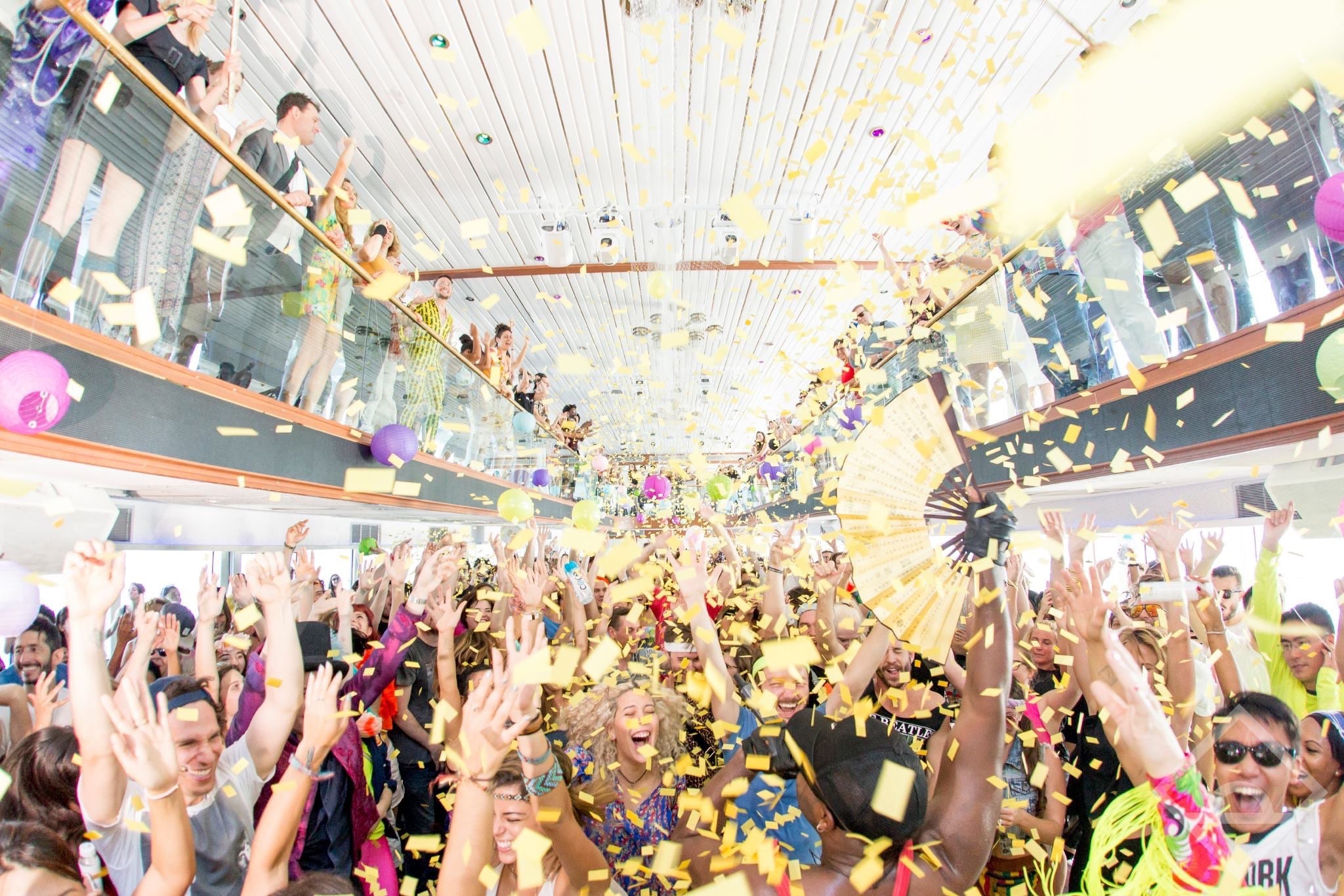
Rolnik has a theory about why social events and alcohol seem inseparable. "Many people feel the pressure of having to go out and look good and be the funniest, most entertaining, most successful, most attractive, and most popular person in the room." He thinks this makes us feel crushed under anxiety to perform. Sometimes, he said, "alcohol stops being merely a pleasure and becomes a way to numb out feelings of discomfort, insecurity, unworthiness, and shame." In those situations it's important to cultivate alternative solutions.
Club Soda NYC, a "social experiment" hosted by wellness expert Ruby Warrington of The Numinous website, also has a similar message. Explaining the concept on her site, Warrington says that "modern drinking culture makes it easier, often way too easy, to choose booze as our go-to method for feeling good (by simply numbing the bad)." The Shine, an "alcohol-free variety show," hosts events in New York City and Los Angeles, which feature live music, storytelling, and meditation.
You Can Still Leave Room For Celebration
Neither Rolnik nor Agrawal think drinking is inherently bad. They just oppose dependance and support building a sense of community without it. "I don't personally think there's anything wrong or bad with alcohol or partying," Rolnik admitted. But, he said, if we want to improve our quality of life and increase opportunities for healthy fun, we must develop a skill for "sober partying." "It is vital to having a good time anywhere you are: at home, in the office, in traffic, shopping, hiking, or Thanksgiving dinner, " he said.
Drinking should be an exceptional treat, not a rule for socializing. "Alcohol or any natural drug should be done intentionally," according to Agrawal. She cited a wedding or birthday as the type of special occasion that would lead her to participate in drinking. She recommended people create intention around it and be very thoughtful about drinking in a safe space around friends you really trust. "That to me is absolutely a wonderful way to get outside your head and your body and into a different part of your brain," Agrawal said.
With events like Daybreaker, Agrawal hopes people will find a way to be cultivate authentic relationships without relying on alcohol as a crutch. "People who feel like they're out of place or feel like they don't have a strong community, people who feel like they lack friends and real relationships are the ones most often prone to drink," she believes. In addition to creative booze-free spaces like Conscious Family Dinner and Daybreaker, people have other ways to build these real relationships without booze. Taking a long walk with a friend or doing a workout class together are just a few ways to connect with people without alcohol.
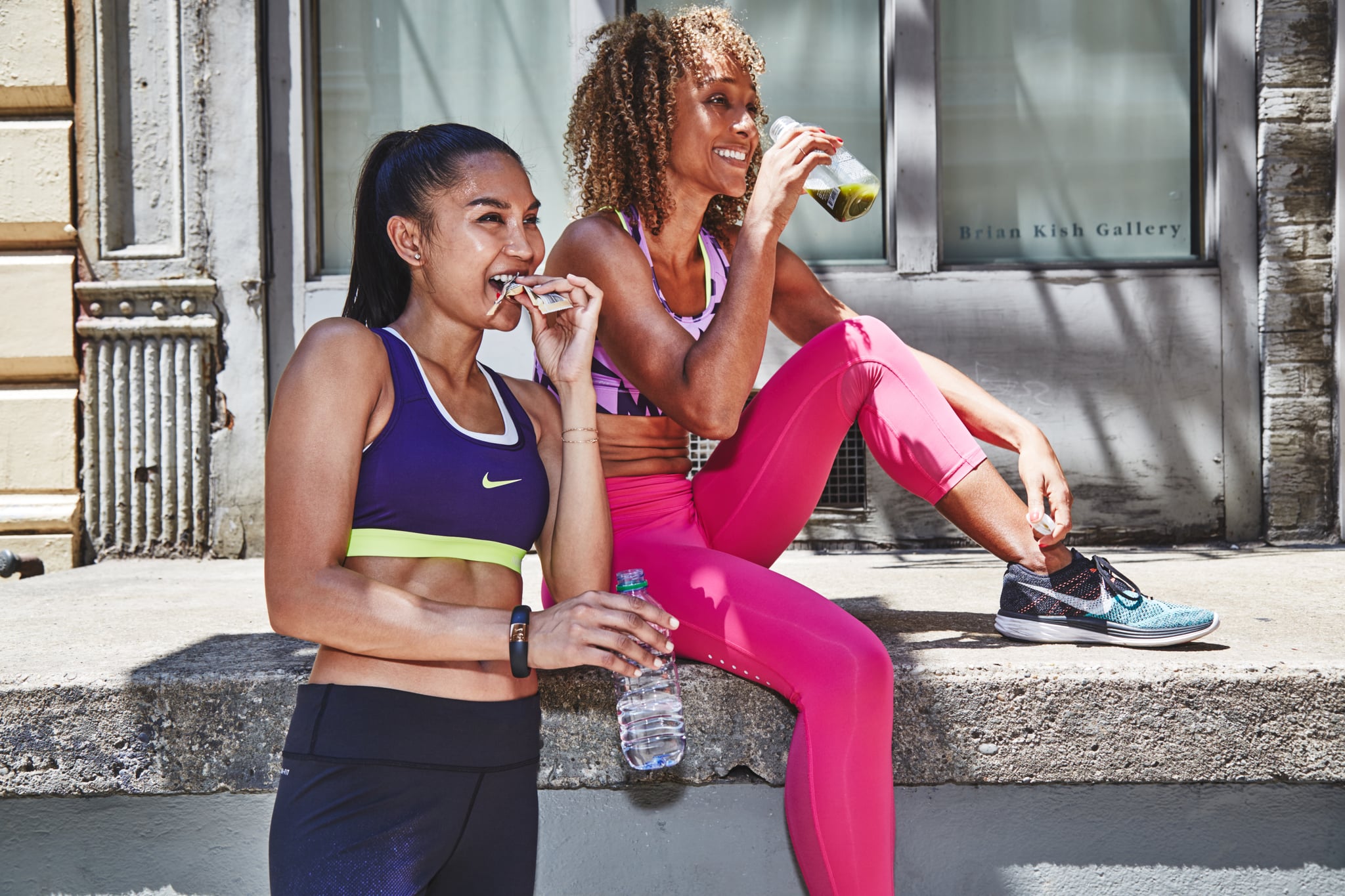
Virgin Cocktails Are Making a Comeback
Imagine if you could have a delicious cocktail without the hangover. Good news: you can! Bartenders are taking virgin drinks more seriously, offering those who want to "grab a drink" without booze more options.
In my own experience, I've found mocktails are a great way to feel included in a social event when you don't feel like drinking the hard stuff. In San Francisco, I often ask bartenders to whip up whatever they're feeling and have been pleasantly surprised with fizzy and refreshing citrusy drinks that sometimes come with a cucumber ribbon or fresh mint leaves. (And they're often half the price of regular cocktails.) On a weeknight, when you're not planning to get too buzzed, you won't even notice the booze is missing.
In 2015, food industry site Eater declared a mocktail revolution. The article compared the growing beverage options for nondrinkers to improved options for nonmeat eaters. Often these options aren't on a restaurant's menu, but don't be afraid to ask.
Mixologist Brian Van Flandern, who wrote the book Vintage Cocktails, told the site, "People who don’t drink alcohol are looking for a great nonalcoholic option and are willing to pay a premium." High-end restaurants want in. Thomas Keller’s Per Se in New York and French Laundry in Napa, CA, have offered nonalcoholic beverage pairings for years, with drinks made of lavender or juniper. New York's two-star restaurant Atera offers a Temperance Pairing with its tasting menu. At $105 per person (just for the drinks!), the restaurant doing some pretty creative things, like "champine" paired with fish roe. The drink is made in-house with Douglas fir. And in London, Redemption Restaurant and Bar offers guests vegan dishes and a mocktail-only drink list.
How the Movement Fits In With Traditional Recovery
As the "sober curious" trend gets popular, how does it fit in with people who are actually sober and in alcohol recovery? Dr. Antonio De Filippo, medical director at Ocean Breeze Recovery in Florida, thinks it's an overall positive development. His patients in recovery often crave ways to meet people besides at a bar. Events like Daybreaker or Conscious Family Dinner provide options. "One of the great positive things that can come of this is people having a venue to meet others that aren’t interested in using substances," said Dr. De Filippo.
People in recovery should still be mindful of triggers to drink, like smoking cigarettes. "You can never remove all the triggers, but putting everything in a healthier context will most certainly be helpful," he said. Overall, he believes "having these opportunities for people in recovery is a wonderful thing because we’re naturally social animals that crave interaction."
If you've tried a Dry January, you may have noticed how connected alcohol is to socializing. If we want to separate the two, we have to do things that are genuinely engaging. Dr. De Filippo has some tips, which he gives his patients. "It is important to integrate social experiences with entertainment. For example, music and dancing would be helpful. Also having other nonalcoholic refreshments would be beneficial, things like juices." Essentially, we cannot just remove alcohol from socializing without adding something back. Events like Daybreaker accomplish this by providing healthy breakfast treats and "wow" factors. These entertaining experiences are more authentically fun. Alcohol, on the other hand, can sometimes act as a distraction from otherwise empty interactions.
People Crave a Consistently Healthy Lifestyle
Alcohol comes with some awesome health benefits. Researchers have found a link between wine and reducing the risk of Alzheimer's. And beer might be able to lower the risk of heart attacks, strengthen bones, protect against diabetes, and increase antioxidants in our bodies. In addition, moderate drinkers have been known to live longer.
For many, the key isn't throwing out all the good with the bad. It's moderation. We all know the difference between having a glass of wine with a nice meal and the yucky feeling we get after drinking one (or four) too many at happy hour. The trend toward dry fun is all about avoiding the crappy physical and mental side effects that come from too much social drinking. I can't tell you how much better I feel each morning I wake up without any hint of a headache, and I've noticed my jeans fit a little looser since I stopped drinking.
The shift in attitude toward drinking appeals to the same women who consider cutting back on sugar, something alcohol has plenty of, by the way. It's about building up new habits consistent with our personal wellness goals. If you're serious about a healthy lifestyle, it's hard to honestly justify three glasses of Sauvignon Blanc after yoga or a SoulCycle class followed by a boozy brunch. By becoming more committed to social experiences without drinking, you'll amplify the benefits of your other healthy habits. And you don't even have to sacrifice the fun.
